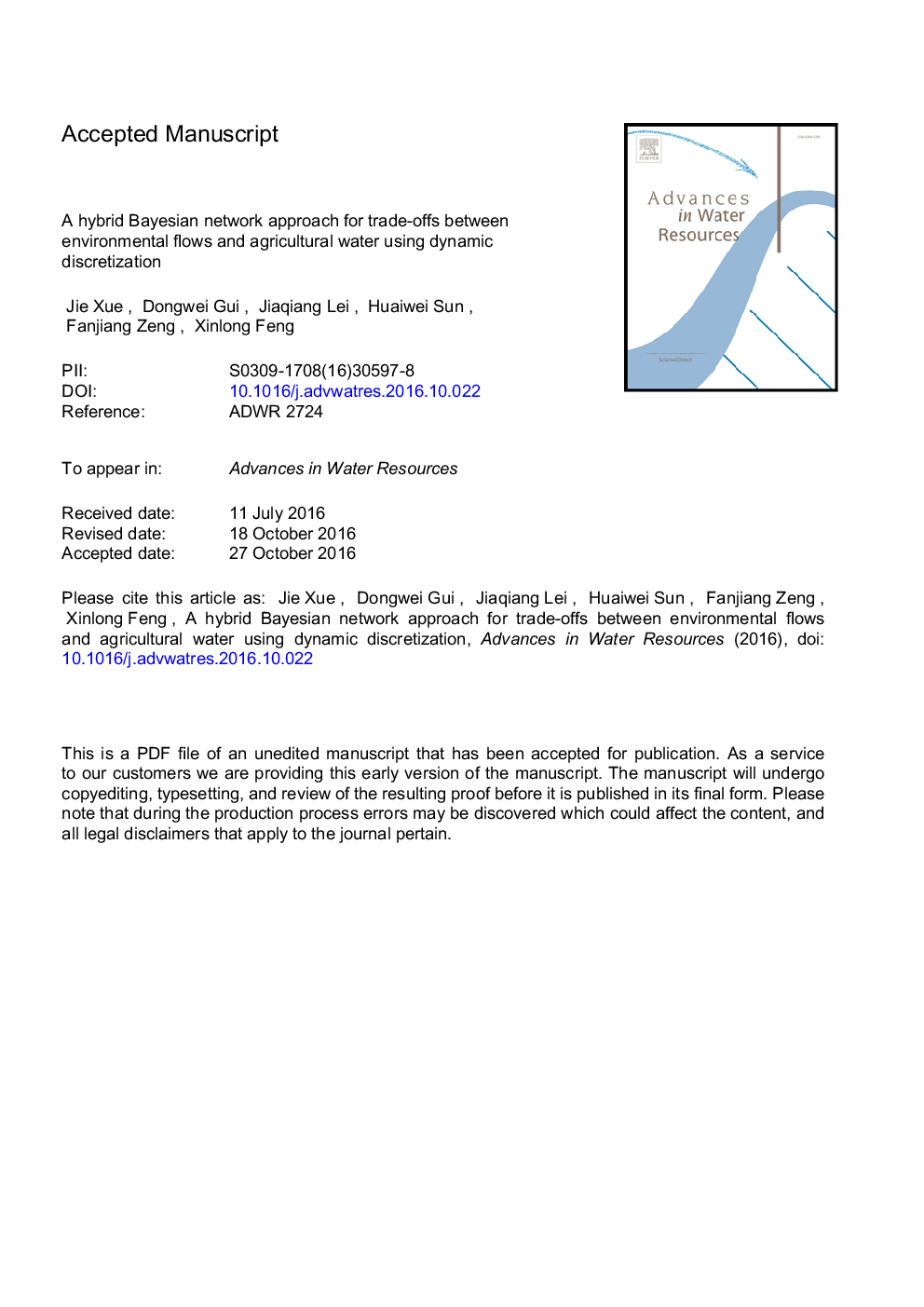| Article ID | Journal | Published Year | Pages | File Type |
|---|---|---|---|---|
| 8883428 | Advances in Water Resources | 2017 | 51 Pages |
Abstract
Agriculture and the eco-environment are increasingly competing for water. The extension of intensive farmland for ensuring food security has resulted in excessive water exploitation by agriculture. Consequently, this has led to a lack of water supply in natural ecosystems. This paper proposes a trade-off framework to coordinate the water-use conflict between agriculture and the eco-environment, based on economic compensation for irrigation stakeholders. A hybrid Bayesian network (HBN) is developed to implement the framework, including: (a) agricultural water shortage assessments after meeting environmental flows; (b) water-use tradeoff analysis between agricultural irrigation and environmental flows using the HBN; and (c) quantification of the agricultural economic compensation for different irrigation stakeholders. The constructed HBN is computed by dynamic discretization, which is a more robust and accurate propagation algorithm than general static discretization. A case study of the Qira oasis area in Northwest China demonstrates that the water trade-off based on economic compensation depends on the available water supply and environmental flows at different levels. Agricultural irrigation water extracted for grain crops should be preferentially guaranteed to ensure food security, in spite of higher economic compensation in other cash crops' irrigation for water coordination. Updating water-saving engineering and adopting drip irrigation technology in agricultural facilities after satisfying environmental flows would greatly relieve agricultural water shortage and save the economic compensation for different irrigation stakeholders. The approach in this study can be easily applied in water-stressed areas worldwide for dealing with water competition.
Related Topics
Physical Sciences and Engineering
Earth and Planetary Sciences
Earth-Surface Processes
Authors
Jie Xue, Dongwei Gui, Jiaqiang Lei, Huaiwei Sun, Fanjiang Zeng, Xinlong Feng,
